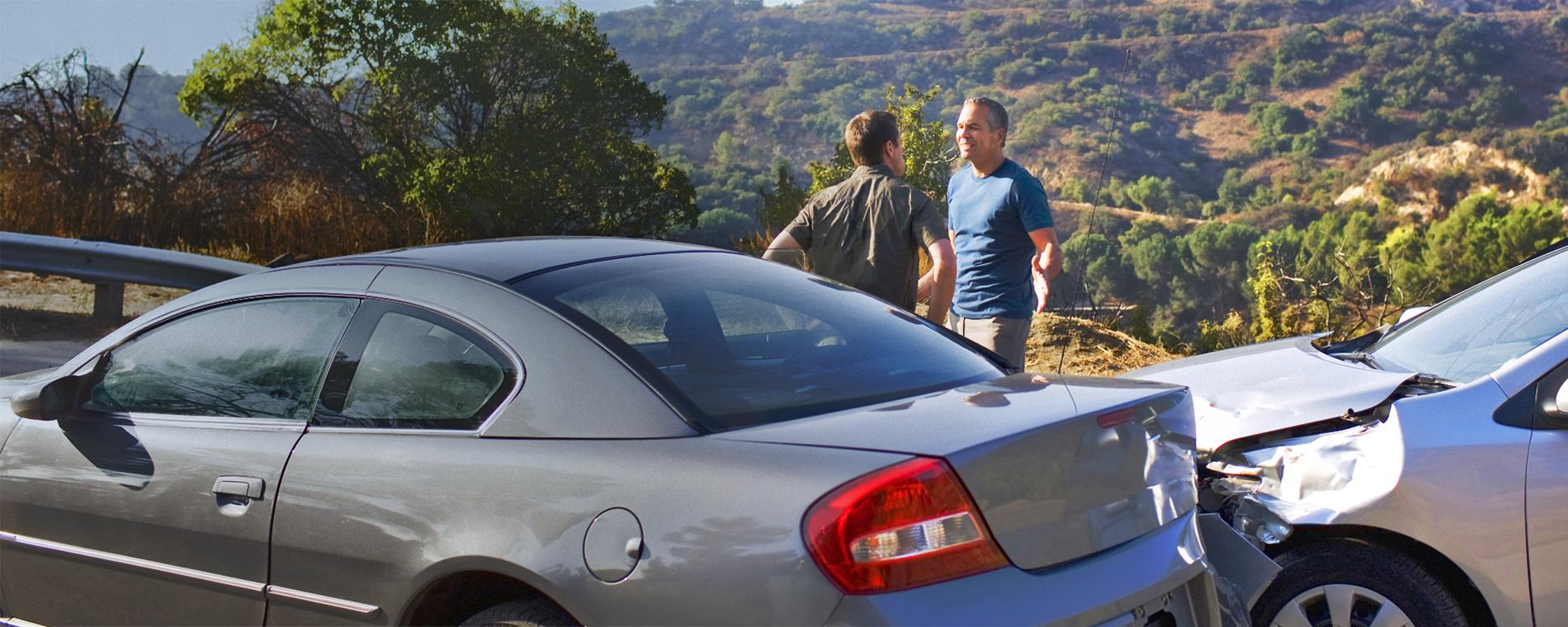Knowing what not to do if you’re in an accident can be as important as knowing what you should do.
If you’re in an accident, you’ll want the best possible outcome for any claim you file. You might even have to make sure you don’t compromise your legal defense by doing the wrong thing. Here are 10 things you should never do.
- Don’t neglect to contact the police. A police report is an impartial record of the accident that may help settle the claim and could provide support for you in case of injury, lawsuits or determining fault. Make sure to get the responding police officer’s contact information.
- Never leave the accident scene before you have spoken to the police or other parties involved in the accident. Doing so can be interpreted as an admission of guilt. Depending on the severity of the accident, it may also be a crime.
- Don’t forget to get the other party’s contact information or forget to provide yours. It’s a legal requirement. Not doing so is a criminal offense termed “leaving the scene without making yourself known.”
- Don’t forget to document the accident. Take photos of all the vehicles and/or damaged property from several angles and distances. Include nearby street signs, traffic lights, etc., to provide context. Note approximate speed, road conditions, witnesses, etc. Make sure to get the name and contact information of passengers in the other vehicle(s).
- Don’t say “It’s my fault” or apologize at the scene of the crash or to the other person’s insurance company or adjuster. If your first instinct is to try to defuse a tense situation by assuming fault, don’t! You don’t have all the facts about the other driver, the other vehicle, or other key factors in an accident. Your insurance company will complete a thorough investigation to determine fault. Assuming blame can hurt you in the event of a claim or lawsuit against you.
- Don’t lose your cool. Angry outbursts can be interpreted as an attempt to threaten, intimidate, or provoke the other driver.
- Don’t automatically say “I’m fine” if you are asked whether you are hurt. You may not be. Some types of injuries are not immediately apparent; both shock and adrenaline can temporarily mask discomfort, so you are not aware of an injury. If you publicly state you are not injured but later you require medical care, it may be more difficult to get compensation from the at-fault party’s bodily injury liability insurance or have your medical bills paid by applicable first party injury coverage. If you are injured, seek professional medical care as soon as possible. Medical records detailing your treatment may be needed in order to process your claim and provide you with payment.
- Don’t forget to notify your insurance company. Not only are you reporting damage to your vehicle and possible injury to you, you also are notifying your insurer that there may be a claim against you for injury to another person or for property damage.
- Don’t speak to the other party’s adjuster, lawyer, or insurance company before you have discussed the accident with your own insurance company or lawyer. You may be asked questions in such a way that your response can be used against you.
- Don’t post about the accident on social media. Your posts can be accessible to defense attorneys and the other driver’s insurance company. What you’ve written can be used to imply fault or to minimize payment for damages due to you.
Contact Us
Our Risk Coaches™ are licensed insurance professionals who are trained to look at coverage from your perspective. They’re glad to help you navigate the often-perplexing world of insurance coverage. Contact your local Risk Coach professional or call us at 800.342.5342, Monday through Friday from 8:00 a.m. to 8:00 p.m. ET.



